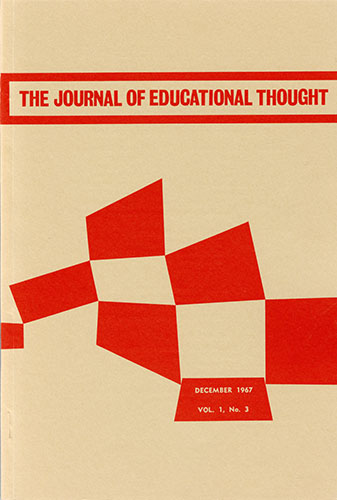Concealed Aims of Education and How We Achieve Them
DOI:
https://doi.org/10.11575/jet.v1i3.43503Abstract
To reveal concealed aims is logically to destroy their characteristic and their hidden power. This result may not, however, apply in the field of public education. Our first concealed aim in society and its schools has been to obscure perception of stark reality, and we have been so successful that the exoteric majority will be unable to discern the truth of these disclosures. Educational historians will recall the Massachusetts Education Act of 1647, in which that "old deluder, Satan" is charged with having kept men in ignorance - first by preventing publication of the Scriptures in the vernacular, and later by discouraging efforts to teach the young to read. Whether Satanic in origin or not, the devices of today are much more sophisticated. The educational significance of Marshall McLuhan's dictum, "the medium is the message," is that there is no longer any message clear and definite enough to distinguish true or false. This makes it possible for people to live in a fog - or several contradictory fogs - and cling concurrently to traditional "truth" and modern denials. The coherent reasoning of hot print, the emotional response from cool T.V., and the church whatever its temperature cannot really be in opposition because in each case the medium not the content is the message. All the school has to do to keep the young in a daze is nothing in particular - and this it does. This is why there is enthusiastic advocacy of E.T.V. - that is, of its "use" as a medium - but relatively little support for critical study in school of the content of television programs to which pupils devote much of their time. Critical appreciation of the productions of other mass media, except books, is similarly neglected in school. This leaves
pupils able to focus their eyes but not their minds, so that the message, if any, is just the medium itself. A neo-Roman circus.
Downloads
Published
Issue
Section
License
The Journal of Educational Thought retains first publication rights for all articles. The Journal grants reproduction rights for noncommercial educational purposes with the provision that full acknowledgement of the work’s source be noted on each copy. The Journal will redirect to the appropriate authors any inquiries for further commercial publication of individual articles. All authors wishing to publish in JET will be asked to fill in and sign a Consent to Publish and Transfer of Copyright agreement.
Authors must affirm that any submission to JET has not been and will not be published or submitted elsewhere while under considration by JET.

